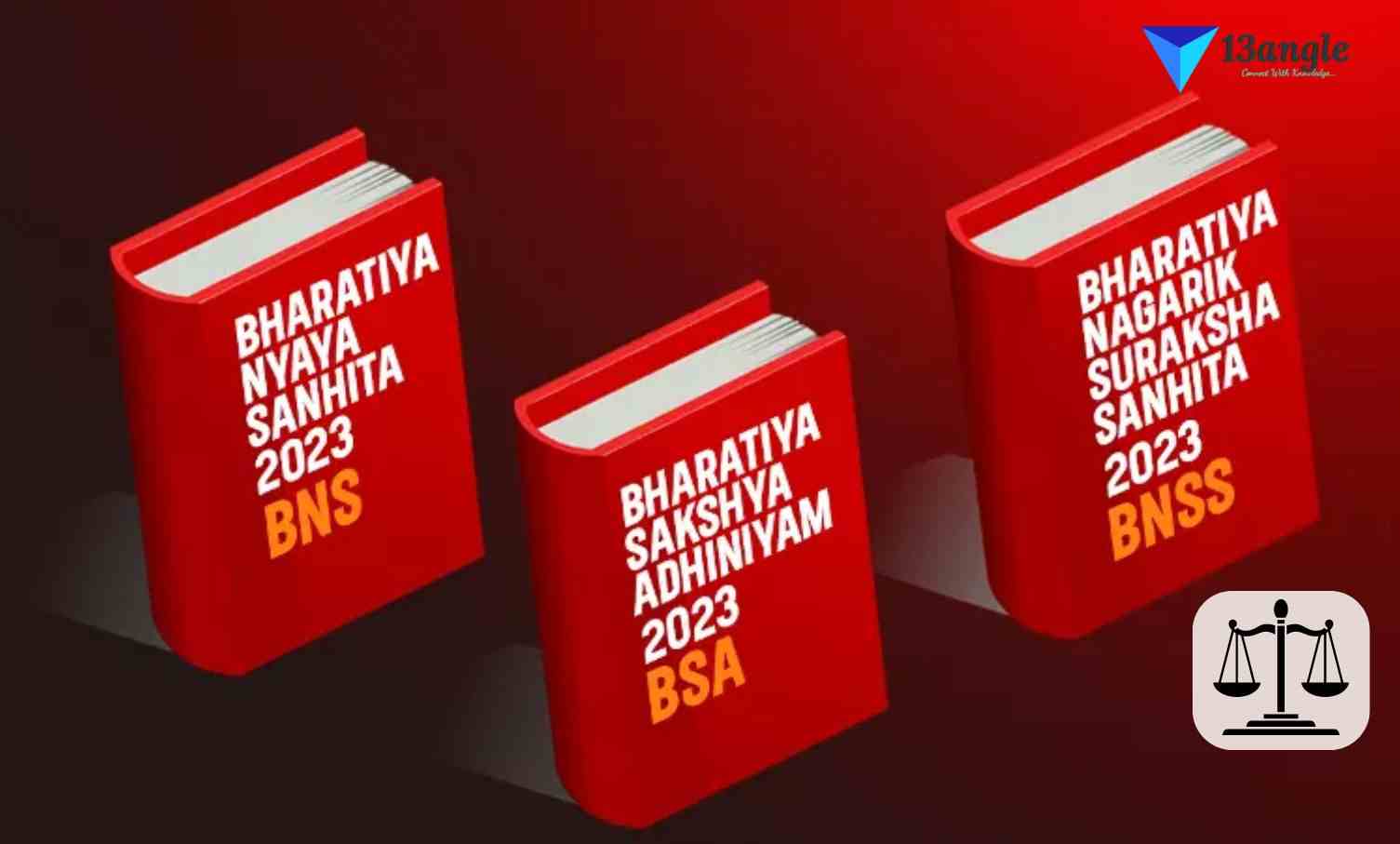
Introduction
- India’s constitution also known as The Law of the Land traces its significance to the year 1946 when the first congressional hearing was held after India’s independence. The participating meeting was between Dr. Rajendra Prasad its president. The idea of clarifying the supremacy of the constitution required physical representation so on 29 August 1947, a draft committee was appointed. Dr. BR Ambedkar has been appointed Chair of the Nomination Committee to achieve a comprehensive and orderly constitution. The key constitutional issues that the drafting committee eventually focused on were the Republic of the Republic, the upper house of parliament, the Independent Justice System, Fundamental Rights, and the State Plan.
- On 4 November 1947, the draft committee submitted the first draft of the constitution and the final draft on 26 November 1949. On 24 January 1950, the draft Constitution, drafted by the Draft Committee, was signed into effect. 26 January 1950.
Background
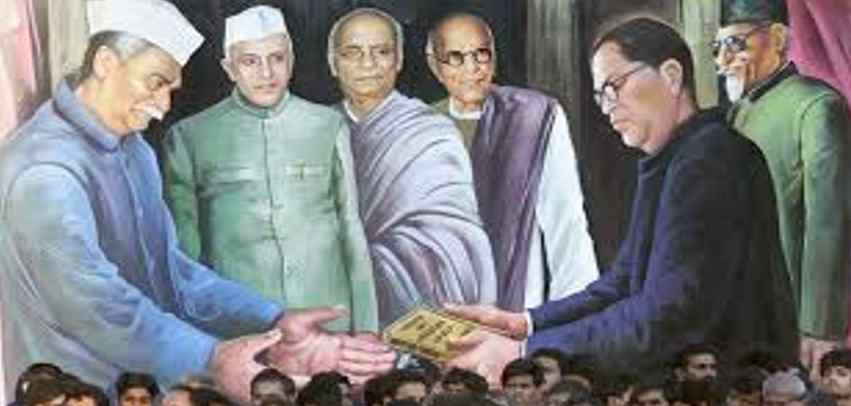
Key functions have been added to the Indian Constitution to promote harmony. Dr. Bhim Rao Ambedkar drafted the constitution of India, which was chairman of the Indian Writing Committee in 1947. The basic functions are set out in Article 51 -A of Part IVA. However, key functions were introduced in the 42nd amendment to the constitution. When the constitution came into force, there were only ten vital functions of Indian citizens; later, the 11th was added to the 86th Amendment Act of 2002.
Basic services basically mean the moral obligations of all citizens of the country and today, there are 11 important functions in India, enshrined in Part IV-A of the Constitution, to promote nationalism and strengthen Indian unity.
“The growing momentum of the drafting of the Constitution of India provides a functional framework that incorporates the principles, procedures, procedures, rights, powers, and functions of government. It also provides the basic rights and essential functions that must be enjoyed and listened to by every citizen,” said Advocate Manoj Chadha.
- The Vision of Basic Works is inspired by the Constitution of Russia (formerly the Soviet Union).
- This was incorporated into Part IV-A of the Constitution by the Constitution Amendment Act 42, 1976 on the recommendations of the Swaran Singh Committee.
- Initially, they were 10 in number, one function added to the Constitution Amendment Act 86, 2002.
- As the Principles of Country Policy, the Basic Services is also inherently unfair.
Important Activities
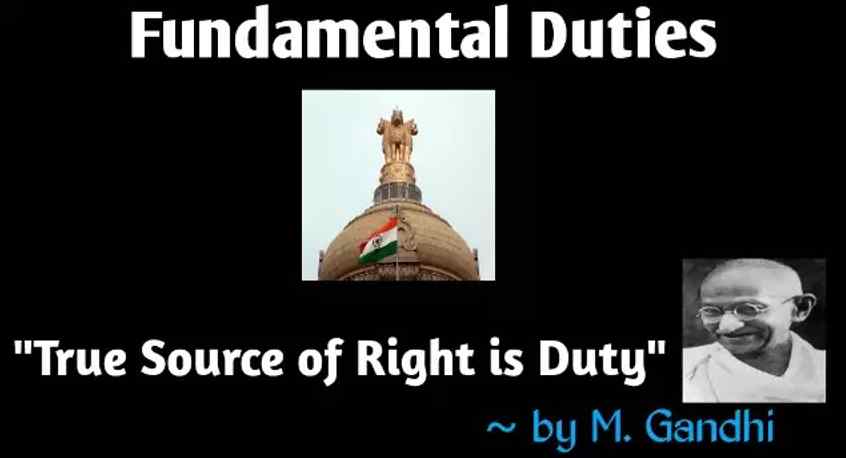
- However, by Amendment 86 of 2002, the first 10 functions were then increased to 11, under Article 51A, Part IV-A of the Constitution of India.
- Commitment to the Constitution of India and respect for the national anthem and the flag
- To acknowledge and follow the ideals that inspired the national liberation struggle
- To protect the integrity, sovereignty, and unity of India
- To protect the country and render national services when and where the country needs
- Promoting a spirit of solidarity and brotherhood among all Indians and condemning any degrading practices against women.
- Appreciating and preserving the rich national heritage of our integrated culture
- Protect and improve the environment including lakes, wildlife, rivers, forests, etc.
- Developing scientific anger, personality, and a spirit of inquiry
- To protect all public property
- Strive to do well in all types of individual tasks and collections
- The 11 basic functions added to this list are:
- Provide educational opportunities for children between the ages of 6-14, and work as parents to ensure that those opportunities are provided for their child.
Swaran Singh Committee On Basic Work
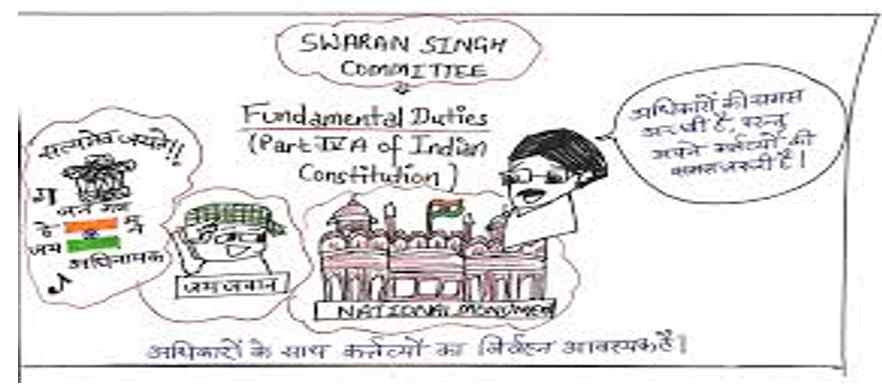
- Suggested that in addition to enjoying certain rights citizens also have certain duties to perform. This recommendation was approved by the government.
- New section Part IVA has been added and one title has been added to it.
- Other committee recommendations that are not accepted include.
Justice Verma Committee
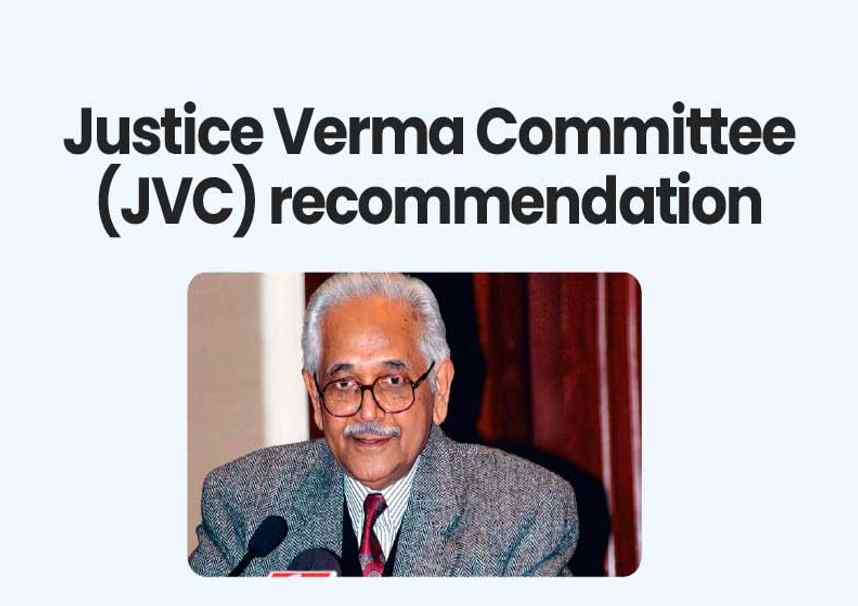
- In order to formulate a strategy and process to implement a global system of compulsory service for all types of educational and teaching institutions in all schools, a Judge Verma Committee was established in 1998. The committee is taking this step because it is aware of the inefficiency of Basic Services. The committee found that the reason for the failure was a lack of strategy for its implementation rather than indifference.
The Committee Provided The Following Services
No one may disregard the National Flag, the Constitution of India, and the National Anthem under the National Anti-Discrimination Act, 1971.
Various criminal laws have been enacted to punish people who promote animosity between people because of race, religion, language, etc.
The Protection of Human Rights Act (1955) provides for penalties in the case of sectarian and religious offenses.
Suspicions and assertions that violate the integrity and unity of the nation are regarded as punishable offenses under various sections of the Indian Penal Code, 1860.
In order to prevent the public body from being declared an unlawful entity, the Illegal Acts (Prevention) Act was introduced, in 1967.
If members of Parliament or the legislature commit any act of corruption, such as soliciting votes in the name of religion, they will be prosecuted under the Advocacy Act, 1951.
The Wildlife (Protection) Act, 1972 protects and restricts trade in the matter
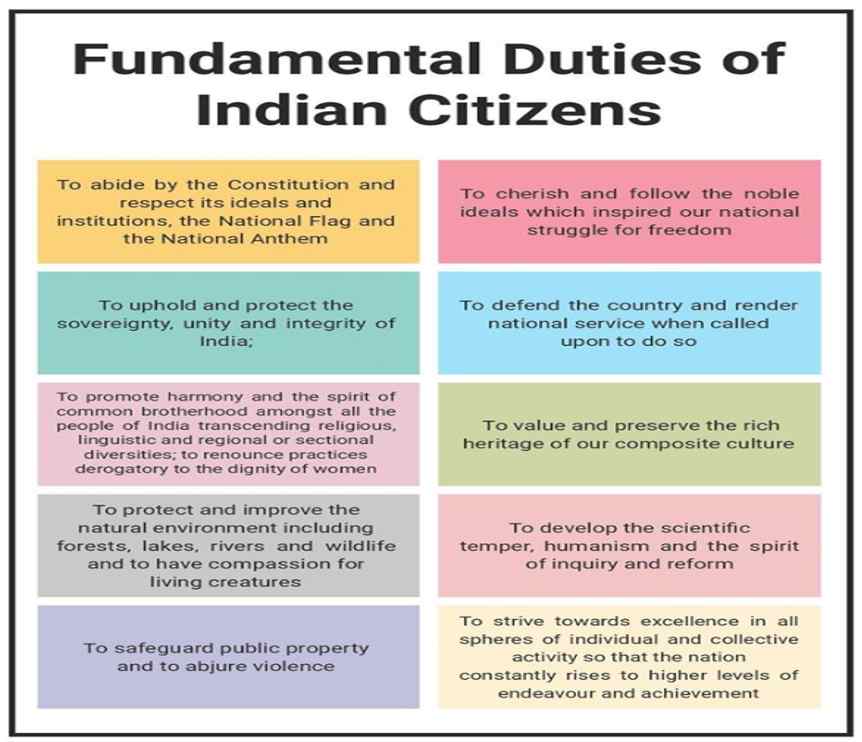
Obeying the Constitution of India and respecting its principles, the National Flag, and the National Anthem: No one shall be subjected to arbitrary interference with his privacy and family life.
Appreciating and adhering to the values that motivated our national liberation struggle: Everyone must respect and use the ideals of the people who have fought for India’s independence. These principles are freedom, equality, non-violence, and brotherhood that keep peace in our society.
To uphold and defend the sovereignty, integrity, and unity of India: Section 19 (2) of the Constitution of India emphasizes the reasonable limits on freedom of speech and expression to protect the integrity of India.
To protect our Nation and to provide National services whenever the country needs: All citizens except Navy, Air Force, Soldiers, etc. must be ready to take up arms whenever the situation arises to protect themselves, their families, and the Nation.
Promoting a spirit of harmony and brotherhood among the people of India: Indians must learn to respect the cultural and linguistic diversity among the people of the country. They should stop the degrading practice against women.
Preserving the country’s cultural heritage: India has one of the richest cultural heritage in the world. It is our job to protect our heritage and pass it on to the next generation.
Protect and improve the natural environment such as – rivers, forests, lakes, and wildlife: This function is also provided for as a constitutional provision under Section 48A. Therefore, it is very important that every citizen must take steps to save our environment and show compassion for the living creatures of our planet.
Developing a scientific and inquisitive mind: People should learn from the experiences of others, explore their surroundings and learn to adapt to changing circumstances. This attitude helps to create a progressive vision for the individual and the community.
Protecting public property and preventing violence: As a result of many past protests, our country has suffered severe damage to the public property. Therefore, we must all ensure that public property must be protected at all times.
Achieving success in all areas of life: In order to ensure that our nation continues to rise to the highest levels of achievement, it is the basic duty of every citizen to do his or her job with the utmost diligence and diligence.
Provide education to children between the ages of six and fourteen. This important final function was added by the Constitution Amendment Act 86, 2002. It emphasizes that parents or guardians must devote their full efforts to planning the education of their children. his children under the age of 6 to 14.
What Is The Need To Legalize Basic Services?
From ancient times the emphasis on Indian society in accordance with the guidelines of the ancient texts has been on the individual ‘Kartavya’.
This is the performance of a person’s duties in relation to the community, the country, and especially to his or her parents.
Gita and Ramayana instruct people to perform their duties without regard for their rights.
In the former Constitution of the Soviet Union, rights and duties were enshrined in one place.
There is an urgent need to enforce and implement at least some of the key functions.
For example, supporting and defending the monarchy, unity, and integrity of India, defending the country, and providing national service where it should be done as well as spreading nationalism and promoting a patriotic spirit in order to preserve Indian unity.
These important activities are gaining momentum after the emergence of China as a powerful empire.
The Verma Committee on Citizens’ Basic Services (1999) has identified the existence of legal provisions for the implementation of some of the Basic Services. The committee provided the following services:
No one may disregard the National Flag, the Constitution of India, and the National Anthem under the National Anti-Discrimination Act, 1971.
The Protection of Civil Rights Act (1955) provides for penalties in the event of any sectarian and religiously motivated offense.
It was argued in the petition that non-compliance with the Basic Rights Act has a direct bearing on the fundamental rights guaranteed under Article 14 (Equality Before the Act), 19 (Protection of certain rights in terms of freedom of speech), and 21 (Right to Life.) Of the Constitution of India.
For example, the need to enforce essential services arises as a result of a new illegal protest mechanism for protesters wearing the garb of freedom of speech and expression.
Criticism Of Fundamental Duties
The Basic Functions mentioned in Part IVA of the Constitution have been criticized for the following reasons:-
Described by critics as a code of ethics for their unethical behavior. Their inclusion in the Constitution was described by critics as inappropriate. This is because the functions enshrined in the Constitution as a basis will be performed by the people even though they are not enshrined in the Constitution.
Some of the functions are vague, vague, and difficult to understand by the average person.
The list of tasks is incomplete as it does not cover other important tasks such as voting, paying taxes, family planning, and so on. In fact, the task of paying taxes was recommended by the Swaran Singh Committee.
Critics say the inclusion of key functions as an addition to Part IV of the Constitution has diminished its importance and significance. It had to be added after Part III to be kept equal to the Fundamental Rights.
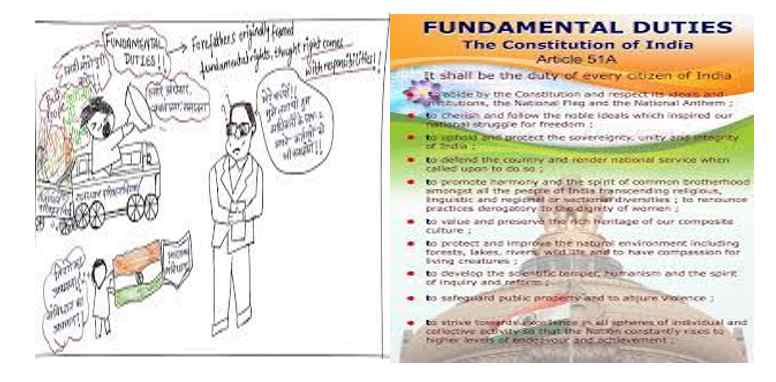
The Swaran Singh Committee recommended more than 10 Basic Activities, however, not all of them are enshrined in the Constitution. The activities recommended by the committee were:
Citizens should be punished/punished by parliament for any inconsistency or refusal to perform any functions.
- Penalties/penalties imposed by Parliament shall not be a problem in any court as a result of a violation of any of the Fundamental Rights or the abhorrence of any other provision of the Constitution.
- Duty to pay taxes.

The relationship between fundamental rights, principles, and essential functions
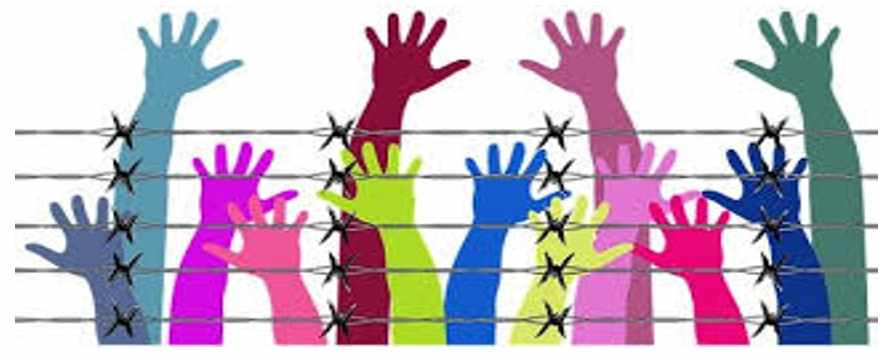
The relationship between fundamental rights, principles, and essential functions is as follows:-
In cases where there has been a conflict between the legitimacy of the constitution and fundamental rights, the National Policy Guidelines have been used to support the constitutional legitimacy of that legislation. Amendment 25 of 1871 adds Article 31C which states that any applicable law which would give effect to the principles of administration provided for in Article 39 (b) – (c) shall not be deemed invalid on the grounds that it violates the fundamental law. the rights contained in Articles 14, 19, and 31 of the Constitution of India. Amendment 42 proposes that Article 31C should be implemented in all Regulations. But the Supreme Court rejected the proposal as it violated the basic constitution of the Constitution of India. To make the basis of the law relating to social welfare basic rights and principles of governance are applied together.
The Supreme Court of India after the Kesavananda Bharati Case, accepted the view that fundamental rights and principles are not only limited but also complementary by providing certain principles for establishing a social state through social change.
The Supreme Court also upheld the constitutional legitimacy of various laws that promoted priorities. These services are not mandatory for all citizens but the Court can use them to make different laws. In this regard, the Supreme Court has already issued guidance to the government to ensure the successful implementation of these activities.
Essential functions are not compulsory for use in the courts but basic rights are enforced by the Supreme Court under Article 32 of the Constitution and the High Court has the power to issue enforcement documents under Article 226. Basic functions and order is not subject to any restrictions imposed on such rights.
Court in the case of Javed vs. the State of Haryana stipulates that the fundamental rights must be learned and the essential functions provided for in Article 51A of the Constitution of India and the guiding principles of a given national policy. in Part IV of the Constitution. They cannot be read alone.
Gujarat Region vs. Mirzapur the Supreme Court held in consideration of the provisions of Article 48, 48-A, and Article 51 (g) that the guiding principles of national policy and basic functions provided for in Article 51- The Constitution of India play a critical role in assessing eligibility. of the constitution of any legal system or of any administrative action. The Court further stated that the validity of any restriction imposed on the fundamental rights by way of regulation, control, or prohibition may be tested by considering the fundamental functions and principles of national policy.
The Ramlila Maidan Case Court held that equality should be maintained between fundamental rights and limitations on the one hand and fundamental rights and fundamental functions on the other. There can be inequality if the value is given only to basic rights or essential functions. Work is considered a real source of privilege. Courts consider the basic functions contained in Article 51A while assessing the appropriateness of the legal limit for the use of various liberties. The court also ruled those functions such as the protection of the monarchy, solidarity, and integrity of the country, the protection of public property, and so on. it is not small.
Referred to N.K. Bajpai competes with the Union of India [16] that there is a similar series operating between Part III, IV, and Part IV-A of the Constitution of India. The first part gives us basic rights while the second part gives us the basic principles of state governance and the third part gives us the basics.
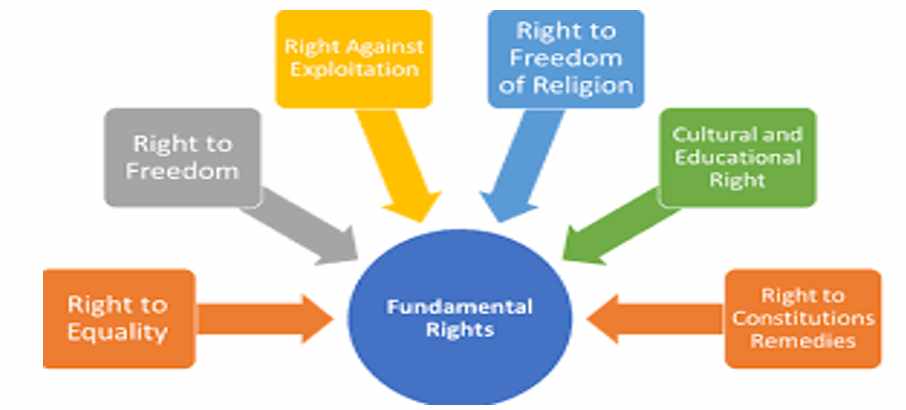
Conclusion
- The core functions of the Indian Constitution are those of all Indian citizens. As a good citizen, it is everyone’s responsibility to pursue these responsibilities. It is very important to promote harmony among the various communities of India. Basic Functions are selected based on all aspects of the morals, customs, and values of Indian society. It also cares for the integrity of the individual and is designed to promote the growth of both the country and its citizens. Basic Services complies with the Constitution of India allowing the government to maintain adequate governance and functioning within the country.
Top 13 Interesting Facts About Fundamental Duties
Originally ten in number, the fundamental duties were increased to eleven by the 86th Amendment in 2002, which added a duty on every parent or guardian to ensure that their child or ward was provided opportunities for education between the ages of six and fourteen years.
Only one Article that is Article -51A is there in Part-IV-A of the Indian Constitution that deals with fundamental duties.
The idea of Fundamental Duties is inspired by the Constitution of Russia.
Duties of citizens to respect and obey federal, state, and local laws. Respect the rights, beliefs, and opinions of others.
Fundamental Duties are intended to serve as a constant reminder.
Originally, the fundamental duties of India were not a part of the Indian Constitution.
Duties of a citizen to participate in their local community. Pay income and other taxes honestly, and on time, to federal, state, and local authorities.
What are the Fundamental Duties and what is their importance?
Fundamental duties like DPSP are non-justiciable.
Article 51 A: Under this article of our Constitution every citizen has been obligated to perform certain duties called the Fundamental Duties.
Performing Fundamental duties towards the nation is the respect of a citizen towards his/her nation.
42nd Amendment Act of 1976 added 10 Fundamental Duties to the Indian Constitution.
Swaran Singh Committee in 1976 recommended Fundamental Duties, the necessity of which was felt during the internal emergency of 1975-77.



